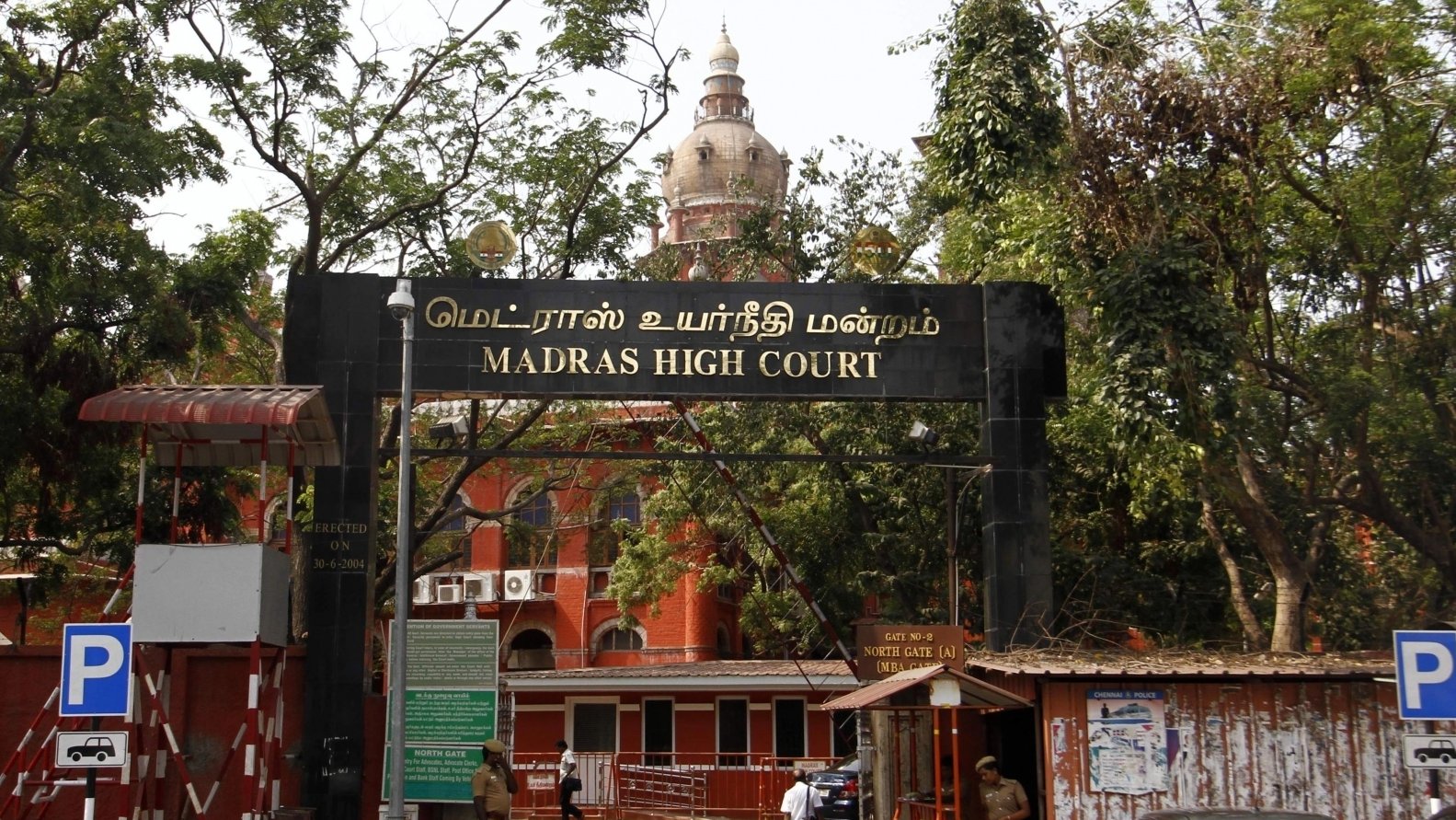The bench also formed a five-member committee to identify and list the temples according to the Agama rules they follow.
Published Aug 22, 2022 | 4:51 PM ⚊ Updated Aug 23, 2022 | 8:55 AM

Retired Madras High Court Justice M Chockalingam to head the committee, the bench ruled. South First/ Umar Sharieef
The Madras High Court on Monday, 22 August, upheld the Tamil Nadu government’s appointment rules for “Archakas” (priests) of all castes across temples that do not follow Agama shastra in the state.
Chief Justice Munishwar Nath Bhandari and Justice N Mala heard a bunch of PILs filed by individuals and members of the All India Adi Saiva Sivachariyargal Seva Sangam challenging the rule before delivering the verdict.
The bench also formed a five-member committee to identify and list the temples according to the Agama rules they follow.
Agama is a practical manual of divine worship. The Agamas include the Tantras, Mantras and Yantras. These are treatises explaining the external worship of God in idols and temples, among other things and within the tradition of Hinduism.
Retired Madras High Court judge M Chockalingam would head the committee, the bench ruled.
It also ordered that the government nominate two members, while another member of the committee should be the commissioner of the Hindu Religious and Charitable Endowments (HR&CE) Department.
In 1982, the Tamil Nadu government constituted a commission under Justices Maharajan and AK Rajan on the process of appointing priests to temples.
They submitted a report that said, “People who are born as Adisaiva or Vaikanasa or Pancharata are qualified to become priests of Saivite or Vaishnavite temples.”
Citing the report, the petitioners challenged the government’s order to appoint non-Brahmin priests.
The petitioners also contended that the commission “recommended that if people from all sections need to become priests, then Article 25 of the Constitution and the Tamil Nadu HR&CE Act must be amended”.
They also claimed that only those persons born in the above-mentioned communities could have the ability to become a temple priest, and the rules of the state government to appoint priests from all castes would eradicate the Agama knowledge system.
It was on 14 August that Chief Minister MK Stalin ordered as many as 24 candidates to be trained as Archakas by the state-run school supervised by the HR&CE Department.
However, the Stalin-led government also appointed candidates from private Vedic schools as priests in temples in the state, taking the overall tally to 58.
Among these candidates are reciters of Tamil devotional hymns.
DMK sources told South First that others opposed the government move because the state appointed 16 Backward Classes, eight Most Backward Classes, five Schedule Castes, and 29 from other castes as Archakas and reciters.
However, a few Hindu activists and Brahmin priests to whom South First spoke denied it.
Former chief minister M Karunanidhi amended the Tamil Nadu Hindu Religious and Charitable and Endowments Act, 1959. However, he, too, faced criticism from other caste groups for his attempts at reform.
Social reformist Thanthai Periyar spearheaded the appointment of non-Brahmins as priests in temples in Tamil Nadu in 1971. He said he would enter the sanctum of temples with people from all castes. Since then, the issue has seen a lot of twists and turns.
DMK spokesperson Saravanan Annadurai told South First that the order of the Madras High Court was a vindication of the party’s policies.
“It is a victory for us: The chief minister implemented it. There were a lot of legal battles, but we were able to manage them all. It is a wonderful moment for us,” he said.
Asked what the need of the judges was to convene a committee again if they saw no harm in the government’s rule, he replied, “It is a significant social change that can cause a social revolution. It was probably that the judges felt that the move should go well and smoothly.”
He refused to comment on an allegation by Hindu scholar and activist Rahul Easwar that non-Brahmin Archakas lack quality when compared with Brahmin Archakas.
HR&CE Minister Sekar Babu refused to comment on the issue when South First contacted him.
HR&CE Commissioner Kumaragurubaran didn’t respond to phonecalls from South First.
There should be a two-hand approach to the issue Easwar told South First.
“On one hand, there should be reform, and on the other hand, the government must also consider the situation of Brahmins. The Brahmin community doesn’t have any reservation or state support, so please respect their insecurities and support them as well,” he said.
Easwar also alleged that some consider this as revenge against Brahmins.
Asked why non-Brahmins should not become a priest or what stops Brahmins from accepting this change, he said, “Everything needs a quality check in the world.”
He added: “Only Brahmins have decades of experience in becoming priests, and only they can perform the duty well.”
Saying non-Brahmins lack spiritual quality, he urged the Tamil Nadu government to look after them before appointing them as priests.
